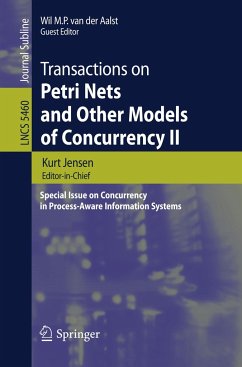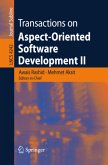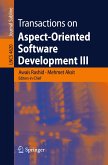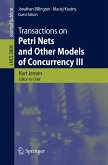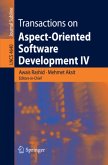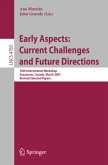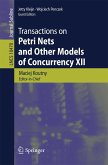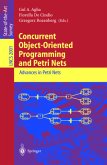Transactions on Petri Nets and Other Models of Concurrency (ToPNoC) II
These Transactions publish archival papers in the broad area of Petri nets and other models of concurrency, ranging from theoretical work to tool support and industrial applications. ToPNoC issues are published as LNCS volumes, and hence are widely distributed and indexed. This Journal has its own Editorial Board which selects papers based on a rigorous two-stage refereeing process. ToPNoC contains:
- Revised versions of a selection of the best papers from workshops and tutorials at the annual Petri net conferences
- Special sections/issues within particular subareas (similar to those published in the Advances in Petri Nets series)
- Other papers invited for publication in ToPNoC
- Papers submitted directly to ToPNoC by their authors
The second volume of ToPNoC focuses on Concurrency in Process-Aware Information Systems. Although the topic of business process management using information technology has been addressed by consultants and software developers in depth, more fundamental approaches towards such Process-Aware Information Systems (PAISs) have been rather uncommon. It wasn't until the 1990s that researchers started to work on the foundations of PAISs. Clearly, concurrency theory is an essential ingredient in these foundations as business processes are highly concurrent involving all types of routing logic and resource allocation mechanisms. The 16 papers in this special issue of ToPNoC cover topics ranging from the formal (mostly Petri-net based) foundations of PAISs to more applied topics such as flexibility and process mining. Thus, this volume gives a good overview of the state of the art in PAIS research.
These Transactions publish archival papers in the broad area of Petri nets and other models of concurrency, ranging from theoretical work to tool support and industrial applications. ToPNoC issues are published as LNCS volumes, and hence are widely distributed and indexed. This Journal has its own Editorial Board which selects papers based on a rigorous two-stage refereeing process. ToPNoC contains:
- Revised versions of a selection of the best papers from workshops and tutorials at the annual Petri net conferences
- Special sections/issues within particular subareas (similar to those published in the Advances in Petri Nets series)
- Other papers invited for publication in ToPNoC
- Papers submitted directly to ToPNoC by their authors
The second volume of ToPNoC focuses on Concurrency in Process-Aware Information Systems. Although the topic of business process management using information technology has been addressed by consultants and software developers in depth, more fundamental approaches towards such Process-Aware Information Systems (PAISs) have been rather uncommon. It wasn't until the 1990s that researchers started to work on the foundations of PAISs. Clearly, concurrency theory is an essential ingredient in these foundations as business processes are highly concurrent involving all types of routing logic and resource allocation mechanisms. The 16 papers in this special issue of ToPNoC cover topics ranging from the formal (mostly Petri-net based) foundations of PAISs to more applied topics such as flexibility and process mining. Thus, this volume gives a good overview of the state of the art in PAIS research.

